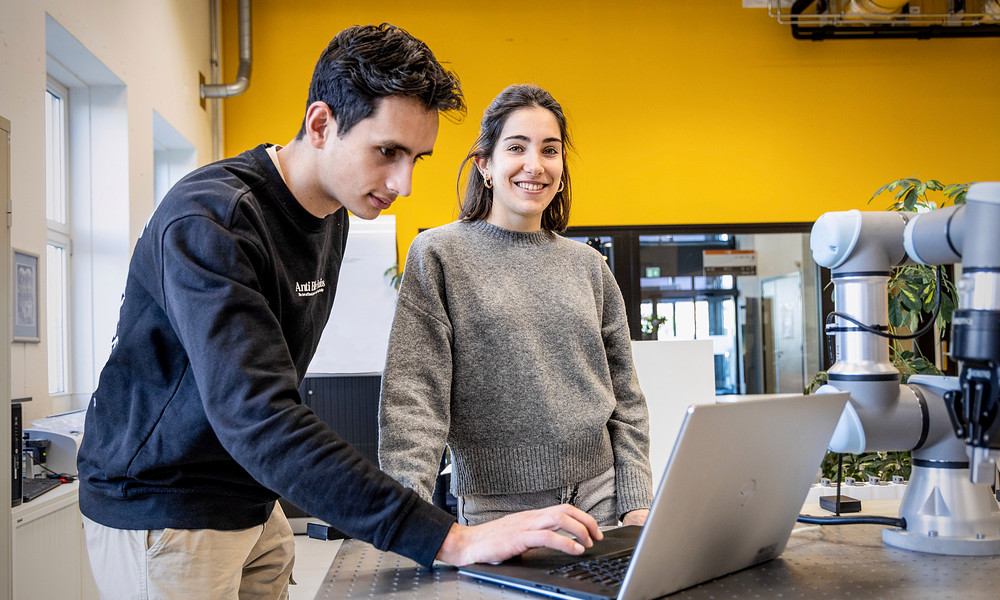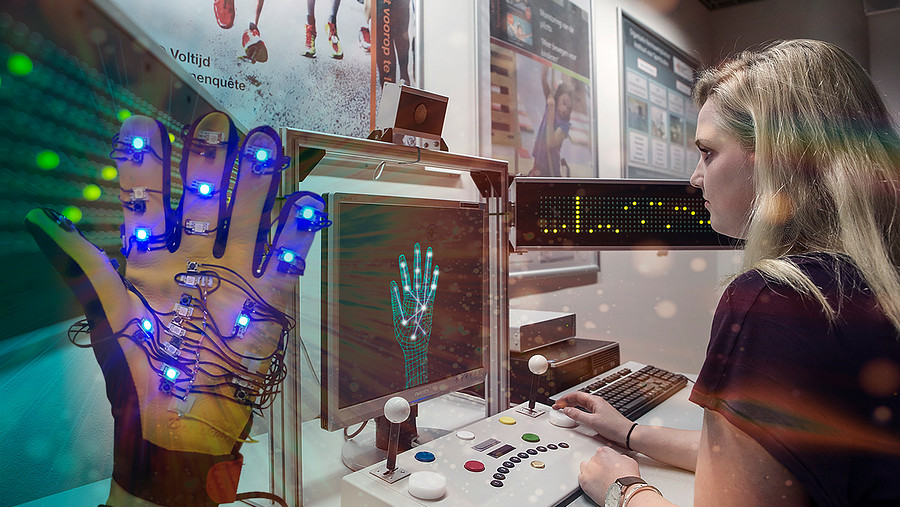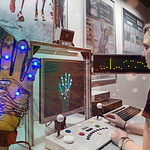Do you want to become an architect of intelligent sensor systems?
- Master
- Full-time
- 3 semesters
Do you want to become an architect of intelligent sensor systems?

Do you want to learn how to build and develop smart systems that are able to interact with their environment? Do you want to be able to move beyond simply generating data? Do you want to implement intelligence at the point of data generation to enable smart interventions in response to changes in the environment? Then this is the master programme for you! You will be challenged to always look beyond what is known to be possible. Smart Systems are the future, so get involved now! What you will find:
✔ International learning community ✔ High-end facilities ✔ Real life clients and assignments
During your master’s, you will work on real-world projects that address societal and organisational challenges. Through hands-on research, you will create innovative solutions that make a difference. Curious what that looks like? Below are a few examples of our students' projects.
You will learn how the build and develop smart sensor systems that can interact with their environment. You will apply your skills and expertise in domains like health, energy and high-tech systems and materials (HTMS). In these areas the application of smart system technology is rapidly evolving, affecting and benefitting the lives and wellbeing of billions of people. You will work on real-life projects from clients and work closely with clients, which means you will gain experience right from the start! In short, this programme contains the cutting edge between data science, system intelligence and building the product that the outside world wants to have.

You will learn how to integrate data coming from multiple, complex sensors and how to interpret this data correctly. In courses like Applied Machine Learning you will also learn how to apply data analysis algorithms. You will be provided with the knowledge and tools required to model and design complex smart systems from big data applications and digital signal processing. By working on various projects you can demonstrate what you learned within a practical setting. You will follow non-technical courses, such as Sustainable Research Skill, which will provide you with the ability to reflect on the sustainability of developed systems.
You will focus on the practical implementation of acquired skills and knowledge. You will learn more complex algorithms and choose which field you want to focus on. Courses include Products and Service Design, where you will focus on the full designing process of a smart system related to an application. During the Sensor Application Specialisation, you will explore various sensor applications in your chosen field (health, energy or high-tech systems and materials). You will engage in a project where you will work with innovative companies or research institutes, like Philips or the University Medical Centre in Groningen (UMCG). In addition to the technical courses, you will learn how to excel in the professional field by following essential, non-technical courses, which will teach you how to conduct research at a master level and how to solve problems within a multidisciplinary setting.
You will work on a six-month research project within your chosen domain, which will result in a master thesis. A few examples of master projects from other students:
For more information about the content of this master's program, consult the course catalogue.
